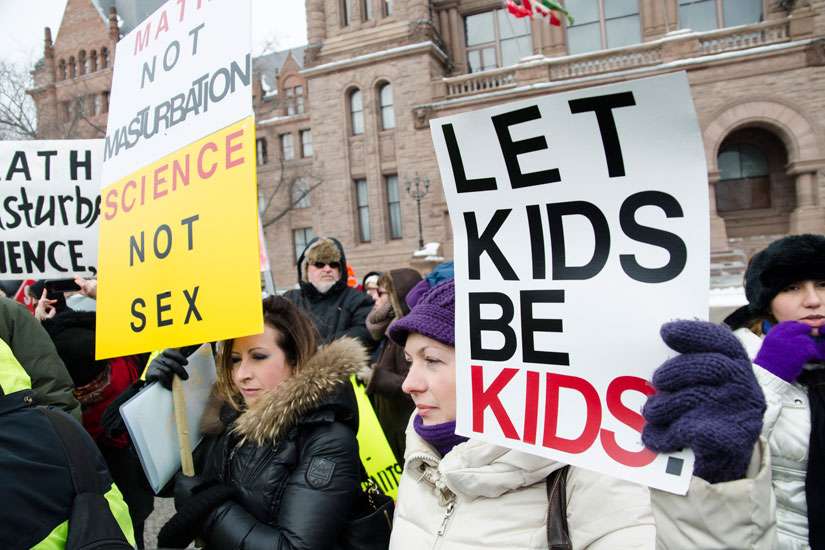“Present the Catholic Christian version of human life and love, including the meaning of sexuality, chastity and marriage,” reads a recently released document by the Assembly of Catholic Bishops of Ontario. “This is the essential context for understanding the Church’s teaching in the area of same-sex attraction and gendered identity.”
Titled “The Human Person, Love and Sexuality,” the 34-page document is presented as a resource to help teachers in their work of “education, formation and pastoral care of the students,” particularly as it is relates to the government’s 2015 Health and Physical Education Curriculum.
“In this document we have attempted both to offer concrete pastoral guidance for the care of students navigating questions of same-sex attraction and gender identity, while at the same time setting this guidance within the broader context of the Catholic understanding of human life, love and sexuality,” reads the document.
It highlights the sacramental role of traditional marriage, discusses the harm caused by infidelity, divorce, pornography, the decriminalization of prostitution, promiscuity, sexual assault and “the promotion of a casual ‘hook up’ approach to sexuality.” It encourages chastity and affirms the Church’s opposition to same-sex relationships and transgender theory. It says sexual and gender identity concerns are complex and not fully understood, and encourages teachers who must navigate questions of sexual identity to “know and strive to understand the vision of the human person and sexuality taught by the Church.”
With respect to terminology, it recommends educators avoid such terms as gay or lesbian, and transgender or cisgender. Such terms, the bishops say, not only fail to acknowledge “the possibility of episodic or transient same-sex feelings or gender confusion,” but they can cause a student to be labelled by “one exclusive characteristic.” Instead teachers should speak of “persons experiencing a same-sex attraction, or persons who are navigating questions of gender or sexual identity.”
Regarding chastity, the document says it requires “sacrifice and struggle,” which ultimately depend on the development of virtues such as courage, perseverance and honesty. “In the pastoral care of students experiencing same-sex attractions, we must be clear that acting on such attractions, engaging in sexual activity, pornography and masturbation are never acceptable actions.”
Under no circumstance should harassment, name-calling or bullying be tolerated in Catholic schools.
“Catholic teaching on human life, love and sexuality is in no way an obstacle to building a safe, inclusive and welcoming school for all students,” the document reads. “On the contrary, the Catholic faith offers a substantial account of human dignity, respect and acceptance of moral action and character, in defence of the right of students to attend school without fear of harassment and violence.”
The document complements material from the Institute of Catholic Education (ICE). Supplemental guidance from bishops is welcomed and appropriate, said Michael Pautler, executive director of ICE.
“The role of the bishops is to teach,” he said. “Documents such as this one are one vehicle that the bishops use to help the faithful know and understand what the Church holds to be true.”
Shelagh Peterson, co-ordinator of religious education and faith formation at Toronto’s Catholic school board, said teachers need this kind of theological support.
“Our Catholic teachers want to have current, relevant and faith-based material to guide and assist them as they prepare to teach the approved family life curriculum,” said Peterson. The resource can be found at acbo.on.ca.


